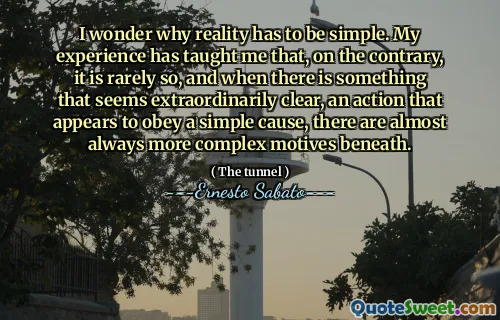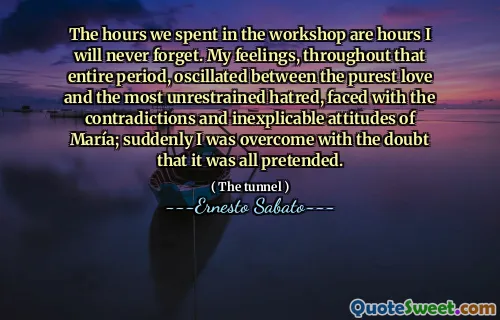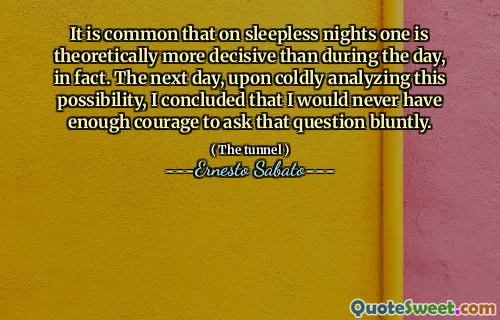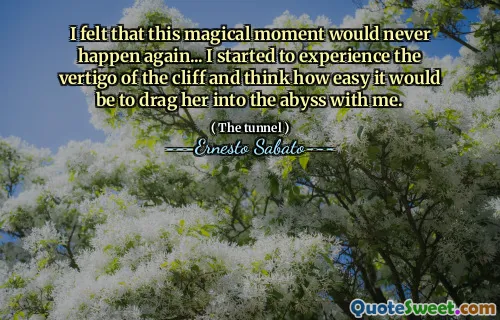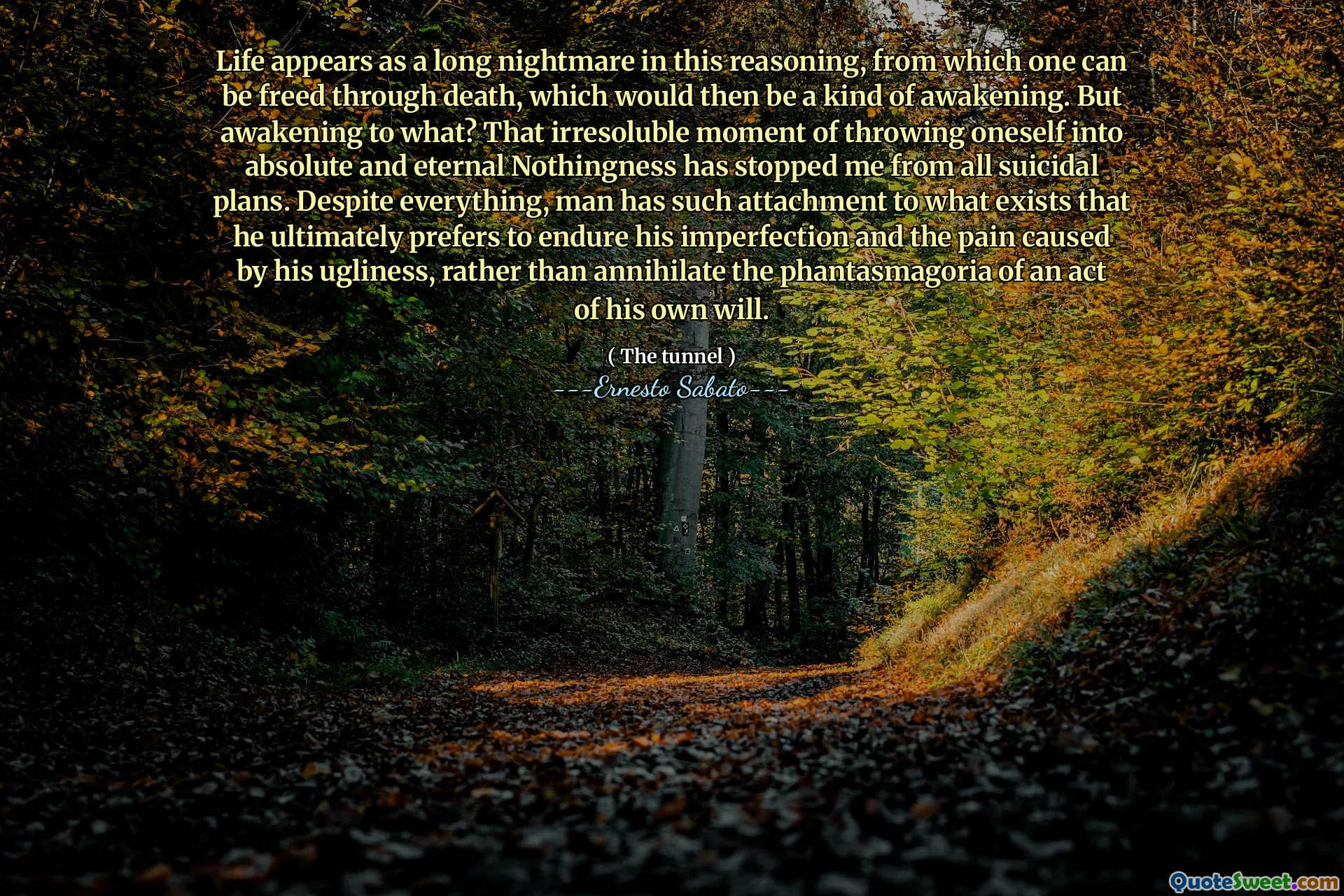
Life appears as a long nightmare in this reasoning, from which one can be freed through death, which would then be a kind of awakening. But awakening to what? That irresoluble moment of throwing oneself into absolute and eternal Nothingness has stopped me from all suicidal plans. Despite everything, man has such attachment to what exists that he ultimately prefers to endure his imperfection and the pain caused by his ugliness, rather than annihilate the phantasmagoria of an act of his own will.
[This quote delves into the profound existential dilemma of human consciousness and the paradoxes of life's perceived suffering. It portrays life as a prolonged nightmare, a state of endless suffering from which death is seen as a potential release—a kind of awakening. However, this "awakening" is elusive, leaving the individual stuck in the uncertainty of what lies beyond death, especially the terrifying notion of nullity or non-existence. This ambivalence fuels the individual's hesitation towards suicide, a choice driven not merely by despair but by a complex attachment to existence itself. Despite recognizing life's inherent flaws, imperfections, and pain, human beings display an almost paradoxical resilience and longing to cling to existence. This attachment is rooted in the perception of life as a meaningful experience, even if fraught with suffering and ugliness, as it represents the only known reality and the collective phantasmagoria that the human mind can construct. The reflection offers a poignant view of human nature—our simultaneous desire for escape from suffering and an intrinsic love for life, however imperfect. It reflects a universal tension between despair and hope, the allure of annihilation versus the fear of the unknown, and highlights our complex relationship with mortality and self-awareness.
The quote invites contemplating the nature of consciousness, the fear of nothingness, and the resilience that keeps us anchored despite existential dread. It reminds us that our attachment to life might be irrational at times, but it is also deeply human, intertwined with hope, identity, and the desire for continuation—an enduring testament to the complex psyches we all share. Ernesto Sabato's insights resonate profoundly in a world where many grapple with similar questions about the value of existence amid its hardships, emphasizing that our reluctance to relinquish life often surpasses our suffering itself, driven by the mysterious and compelling beauty of simply being alive.

